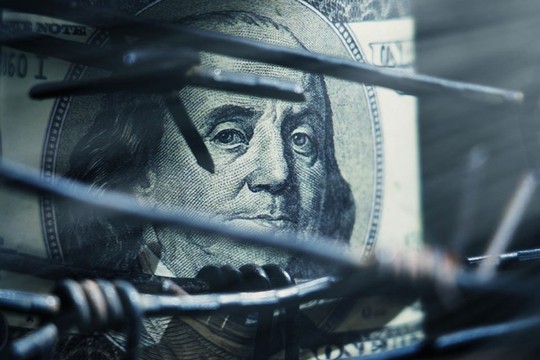“Tens of billions in dollar terms are stuck in Russia,” the chief executive of one large company domiciled in a country told ‘The Financial Times’. “And there is no way to get them out.”
Western companies that have continued to operate in Russia since Moscow’s invasion of Ukraine have generated billions of dollars in profits, but the Kremlin has blocked them from accessing the cash in an effort to turn the screw on “unfriendly” nations.
Groups from such countries accounted for $18 billion (€16.8 billion) of the $20 billion in Russian profits that overseas companies reported for 2022 alone, and $199 billion of their $217 billion in Russian gross revenue.
Many foreign businesses have been trying to sell their Russian subsidiaries but any deal requires Moscow’s approval and is subject to steep price discounts. In recent days British American Tobacco and Swedish truck maker Volvo have announced agreements to transfer their assets in the country to local owners.
Local earnings of companies from BP to Citigroup have been locked in Russia since the imposition last year of a dividend payout ban on businesses from “unfriendly” countries including the US, UK and all EU members. While such transactions can be approved under exceptional circumstances, few withdrawal permits have been issued.
US groups Philip Morris and PepsiCo earned $775 million and $718 million, respectively. Swedish truck maker Scania’s $621 million Russian profit in 2022 made it the top earner among companies that have since withdrawn from the country. Philip Morris declined to comment. PepsiCo and Scania did not respond to requests for comment.
Among companies of “unfriendly” origin that remain active in Russia, Austrian bank Raiffeisen reported the biggest 2022 earnings in the country at $2 billion, according to the KSE data.
US-based businesses generated the largest total profit of $4.9 billion, the KSE numbers show, followed by German, Austrian and Swiss companies with $2.4 billion, $1.9 billion and $1 billion, respectively.
‘The Financial Times’ reported last month that European companies had reported writedowns and losses worth at least €100 billion from their operations in Russia since last year’s full-scale invasion.
German energy group Wintershall, which this year recorded a €7 billion non-cash impairment after the Kremlin expropriated its Russian business, has “about €2 billion in working interest cash... locked in due to dividend restrictions”, investors were told on a conference.
“The vast majority of the cash that was generated within our Russian joint ventures since 2022 has dissipated,” Wintershall said last month, adding that no dividends had been paid from Russia for 2022.
Russian officials are yet to outline “a clear strategy for dealing with frozen assets”, said Aleksandra Prokopenko, a non-resident scholar at the Carnegie Russia Eurasia Centre. “However, considering the strong desire of foreign entities to regain their dividends, they are likely to explore using them as leverage – for example to urge western authorities to unfreeze Russian assets.”
…After the introduction of draconian sanctions against Russia and freezing billions of Russian assets, the West is now surprised that Moscow fought back.
read more in our Telegram-channel https://t.me/The_International_Affairs

 11:04 21.09.2023 •
11:04 21.09.2023 •























